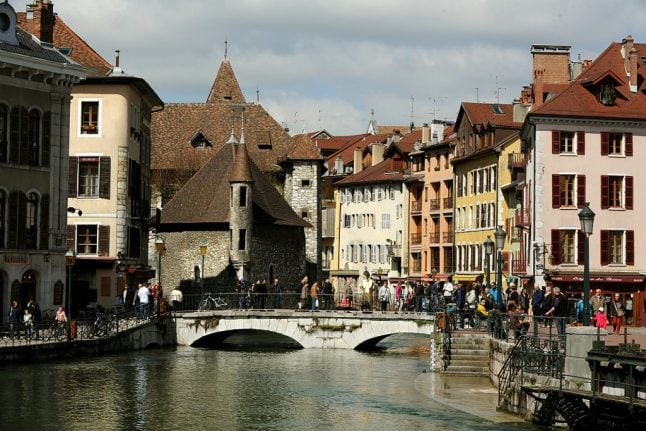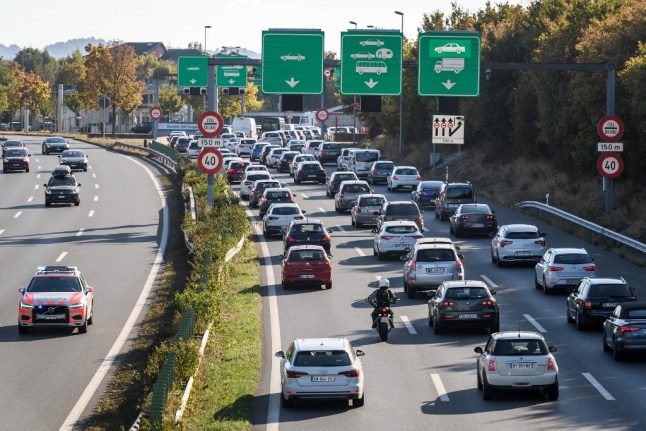The study took in a raft of data from the French official statistics body Insee concerning safety, transport, services, health, education, leisure opportunities and commercial purchasing power and ranked 34, 841 communes in France.
And it found that Annecy was the best place to live in France, thanks partly to the high numbers of frontaliers who live there.
READ ALSO Work permits – Switzerland to introduce new rules for language proficiency certificates

Lake Annecy offers a host of watersports to locals and tourists alike. Photo: AFP
Popular as a tourist destination in both summer and winter and with second home owners, the town is also a favourite among frontaliers who live in France and work in Switzerland, as it is just a 40 minute drive to Geneva.
In fact of the people of working age who live in Annecy – 11 percent of them work in Switzerland.
This gives the town a low unemployment rate (6.2 percent) while Swiss workers, who tend to be on higher pay, find prices affordable.
The flip side of this is that prices, especially for property, are rising in the town.
But locals are still enthusiastic about its picture postcard charm and and good levels of services.

The town has lower unemployment than the French average. Photo: AFP
The survey, done by opinion pollsters OpinionWay, took data from Insee in 182 official criteria to create the list.
Towns were ranked in numbers according their size, then the overall winner of all categories as chosen.
Of the bigger towns Angers, Le Mans, Bayonne and La Rochelle scored top.
“There is no element declaring the feelings of the inhabitants,” researcher Thierry Saussez, told the Journal du Dimanche, which published the results.
“We have chosen to use 100 percent quantitative and objective data, the only way to make comparisons. Thus, the economic policies of local elected officials or hyper-local initiatives are not taken into account.”



 Please whitelist us to continue reading.
Please whitelist us to continue reading.
Member comments